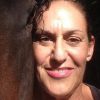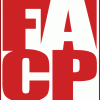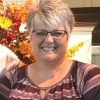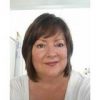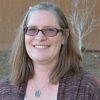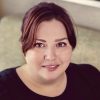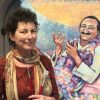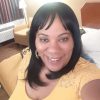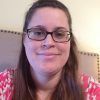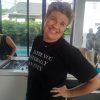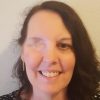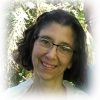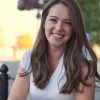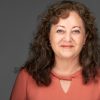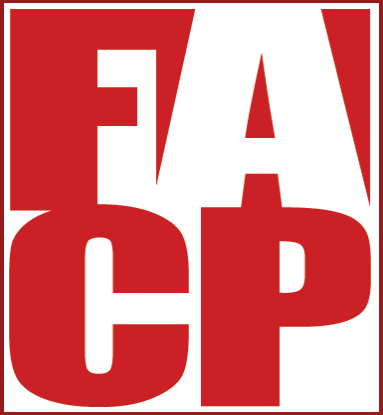
Conversations:
I am here today to talk to Doug Lowell, the president of Find A Cure Panel about Find A Cure Panel.
So, yes, I’m interviewing myself!
I’m doing this because so many people ask me about Find A Cure Panel and I wanted to create some reference points for them and answer as many questions as they might have.
Doug, thanks for joining Conversations today.
Doug Lowell, the President of Find A Cure Panel:
It’s nice to be here. Fire away.
Conversations:
Tell Conversations readers about Find A Cure Panel.
Doug Lowell, the President of Find A Cure Panel:
Find A Cure Panel finds people to participate in research for rare and serious diseases and is a thus a platform for people to share their experiences as to their condition and treatment.
Conversations:
What is the relationship of Sample Czar to Find A Cure Panel?
Doug Lowell, the President of Find A Cure Panel:
Sample Czar is the parent company of Find A Cure Panel. Sample Czar recruited in all categories from consumers, teens, Hispanics, IT professionals, etc.
About 2010, we started to focus on patients and diseases and created Find A Cure Panel.
Soon thereafter, we focused on almost exclusively on patients.
But our research clients know us as Sample Czar and the patients know us as Find A Cure Panel.
It would be easier if it was just one name instead of two but Sample Czar is an internationally known company and Find A Cure Panel is well know within the patient communities.
Conversations:
What is the difference between a serious and rare disease? Also, do you work in general ailments?
Doug Lowell, the President of Find A Cure Panel:
Yes, we work in all ailment categories from acne, asthma, arthritis, to Z but we specialize in serious and rare diseases.
A serious disease is more common than a rare disease so serious diseases as we define them would by MS, HIV, Parkinson’s, Crohn’s, RA, Diabetes 1, etc.
There are about 25,000 diseases.
Conversations:
And do you also recruit for health care professionals? Are you global?
Doug Lowell, the President of Find A Cure Panel:
We do NOT recruit for health care professionals although we might recruit for key opinion leaders (KOLs) and patient advocates.
We only work in the US market.
Conversations:
Do you recruit for clinical trials?
Doug Lowell, the President of Find A Cure Panel:
We do NOT recruit for clinical trials. That’s a different beast and is usually recruited from doctors and out of hospitals.
We might do some work that’s related to pre-clinical research but not the trials themselves.
We specialize in qualitative and quantitative research.
Conversations:
What is qualitative and quantitative research?
Doug Lowell, the President of Find A Cure Panel:
Qualitative research refers to experiential based research with drill down discussions into diagnosis and treatment and is generally done via phone or an online based bulletin board or community.
Quantitative research is statistic based research that will have a numeric emphasis like 10% of participants said X and 40% said Y and 50% said 70. And the majority of women said this . . . and people over 50 said that . . . so analyzing the data and making conclusions.
Conversations:
What size volume of participants do you generally work in?
Doug Lowell, the President of Find A Cure Panel:
Small. 80% of our business is qualitative and those participants numbers generally range from 10 to 30.
Most rare disease research cannot be done with quantitative research because we cannot get 100+ participants.
But the quant projects we do range in size from 20 to 200 with the sweet spot being more 50 to 100.
Conversations:
Who are your clients?
Doug Lowell, the President of Find A Cure Panel:
We have two levels of clients. The research client and the sponsoring or end client.
There are about 100 companies in the US that specialize in health care research so those are our clients.
The sponsoring clients are those that have treatments on the market or coming on the market in that disease category.
We work directly with the health care research client and do NOT interact with the sponsoring client at all.
There is also university research, insurance research, hospital insurance etc. and we do work in those categories but 90% of our sponsoring clients have treatments on the market or coming on the market in the sector.
Conversations:
Do you identify the sponsoring client to the participants?
Doug Lowell, the President of Find A Cure Panel:
No. Our research is unbranded. We don’t want participants to have any preconceived notion about who the sponsoring client is. That could skew the research. Many projects emphasize the participant’s knowledge and experience with the client’s treatment so their opinions need to be unbiased.
But we do tell participants that the sponsoring client has a treatment in their disease category.
Conversations:
How is this research structured?
Doug Lowell, the President of Find A Cure Panel:
There are 3 phases to research. Phase 1 is design of the research. Phase 2 is data collection or fielding and Phase 3: analysis.
We only work in Phase 2.
Our research clients will design the survey in conjunction with their sponsoring client and present the analysis to the sponsoring client.
Conversations:
For the qualitative research who moderates that?
Doug Lowell, the President of Find A Cure Panel:
The research client moderates their own QUAL although they might hire an outside moderator to do that.
A good summary of that can be found in the interview that Conversations did with Rachel Roskow.
https://conversationsfindacuremag.com/category/researchers/
Conversations:
Is Find A Cure Panel involved in the analysis?
Doug Lowell, the President of Find A Cure Panel:
No. Not at all. Our role really ends at Phase 2.
I would summarize our role as: Finding the participants, encouraging them to participate, ensure they qualify, get the preliminary information, schedule them, remind them to participate, confirm they participate and deal with the incentives on the back end.
Conversations:
Do your projects generally have IRB approval?
Doug Lowell, the President of Find A Cure Panel:
Some do and some don’t. Those that do tend to be preclinical trial or investigative or for publication. It’s the research clients role to determine if IRB is needed.
A common misperception is about the need for IRB approval.
Sometimes, I hear people say, “Oh, I know research. You must have IRB approval.”
And the clear answer is that is university and clinical research and not necessarily the case for proprietary research that doesn’t fall into those categories.
Conversations:
How are people incentivized?
Doug Lowell, the President of Find A Cure Panel:
Participants are incentivized by honoraria (direct payment to them) or by a donation to a non profit of their choice or a fundraiser.
Our traditional model was NOT to pay participants but by donation to a non profit of their choice.
This model raised hundreds of thousands of dollars for hundreds of non profits. Many listed here.
http://www.findacurepanel.com/donations.html
But we concluded that most participants preferred to be paid and we moved away from the non profit incentive model.
Conversations:
Is participation confidential and anonymous?
Doug Lowell, the President of Find A Cure Panel:
Yes. Absolutely. All participation is confidential and anonymous. For QUAL research, participants are given a 1800 number to call into. No PI is given to clients. For QUANT, they click on a survey link and can only be identified by an ID that looks like: 50010-1234567890.
The researchers have no idea who the participant is.
Conversations:
What about clients who work with Focus Vision and Civicom who want to have them call out to the patients to test the access to the participation link?
Doug Lowell, the President of Find A Cure Panel:
We work with both of those technology vendors every day but no, we do NOT give our patients numbers to anyone under any circumstances.
And sometimes we are pushed to do so.
And tell them, no. Never. Not here.
This is our model and will never change.
Conversations:
Do you sell email lists?
Doug Lowell, the President of Find A Cure Panel:
No?
Conversations:
Are you involved in social listening research?
Doug Lowell, the President of Find A Cure Panel:
No. We only recruit for qualitative and quantitative research. We don’t sell lists and we don’t do social listening which is controlled by software algorithms.
Conversations:
Is there fraud in research.
Doug Lowell, the President of Find A Cure Panel:
Yes but it’s general Participant fraud with participants all over the globe hiding in panels or trying to get into research. This is especially a concern with online research and high incentive research.
Our model is designed to eliminate that.
Virtually, all of participants are prequalified by me.
No one gets into the research without that.
For instance, we recently concluded a 20 person online survey. The online vendor gave us 50,000 links.
Funny, we had like 22 people in the survey. All prequalified.
Conversations:
How difficult is it to find participants?
Doug Lowell, the President of Find A Cure Panel:
Extremely but that’s what we specialize in. We recruit in all categories regardless of how obscure. We’ve worked in populations of less than 50 people in the US.
Conversations:
Do you recruit for oncology? Stage 4?
Doug Lowell, the President of Find A Cure Panel:
Yes. It’s a subspecialty. We have done over 100 projects in stage 4 alone and 30 projects in various leukemia’s and lymphomas: CML, AML, CLL, etc.
We work in all patients areas – autoimmune, neurology, pulmonary, kidney, transplants, dermatology, etc.
Conversations:
Your Find A Cure Panel website doesn’t have a lot of info . . . it’s pretty stark.
Doug Lowell, the President of Find A Cure Panel:
This is by design. We can’t list our surveys on the FACP site or we will have people fraudulently trying to get into them from all over the globe.
And we don’t want people to sign up for FACP because there’s not enough research opportunities for them.
As said, there are 25,000 diseases and only occasional research in each disease category.
All of our projects are custom recruited.
Conversations:
So, you’re not a panel company but you’re called Find a Cure Panel? I’m confused.
Doug Lowell, the President of Find A Cure Panel:
I’ll unconfuse you. When we created a brand for patients over 10 years ago, our model was indeed to create specific panels for disease categories and thus, I named this company, Find A Cure Panel.
But we quickly realized that panel model would not work so we focused on a recruitment model that we have today.
That said, we kept the name. Too late to change it.
Conversations:
Does the research you recruit for focus on “cures”?
Doug Lowell, the President of Find A Cure Panel:
No. I would say that most research we recruit focuses on treatment experience and not cures per se. But the end goal of research should be cures and that is one reason why we kept the Find a Cure Panel name.
It’s aspirational and inspirational.
There have been “cures” in certain categories like Hep C. We worked in a child blindness cure project and everyone wanted to participate in that research!
There’s, for example, targeted therapy for HER 2+ breast cancer and ALK, EGFR for lung cancer that are not cures but turned those advanced stage diseases into chronic instead of terminal.
With great developments in genetic testing, we expect there to cures in many diseases in our lifetime.
Short of that, every generation of treatment is an improvement from that last so those with both chronic and terminal diseases should continue to see stronger quality of life.
Conversations:
Are there competitors to Find a Cure Panel?
Doug Lowell, the President of Find A Cure Panel:
Not really. No one does what we do. There are other companies who work in serious diseases but no one wants to spend a month in stage 4 bladder cancer, for example.
There’s not enough volume there to spend a month finding 10 people and the economics don’t work.
No one wants to do this but me and no one want to spend a month looking for people who likely will die in the next year.
Again, no one but me.
Conversations:
Then why do you do it?
Doug Lowell, the President of Find A Cure Panel:
I find the participants extremely inspiring.
The strength of their spirit is awesome.
And I have a responsibility to these patients and those that come after them.
I have done it and can do it and will continue to do so.
Conversations:
Is it burdensome to work with very sick people all day and every day?
Doug Lowell, the President of Find A Cure Panel:
No. Not for me.
A core philosophy for Find A Cure Panel is it’s “all good all the time.”
There’s a lot of negativity in all aspects of life especially for those with serious disease.
But we always try to keep a positive mindset.
Conversations:
That must be a challenge.
Doug Lowell, the President of Find A Cure Panel:
It certainly can be I need to fight through it.
And I encourage the participants to also fight through it.
Conversations:
How would you describe the type of participants that FACP want?
Doug Lowell, the President of Find A Cure Panel:
A strong participant is engaged, thoughtful, open to sharing, has a good memory for detail, can successfully articulate his/ her experience.
Conversations:
Can you identify that in recruiting?
Doug Lowell, the President of Find A Cure Panel:
Yes and no. I have a good sense who will be strong participants from my initial discussions.
But in recruiting, the people we want are ones who say, “How can I help? What do you need from me?”
A person with that attitude will always be a good respondent.
Conversations:
How much skepticism do you find in approaching participants?
Doug Lowell, the President of Find A Cure Panel:
It varies but I try to clearly summarize the research and their participation and then answer any follow up questions that they may have.
Some people want to participate and other’s don’t. It’s a personal choice and we respect everyone regardless of they participate or not.
Conversations:
How much do you work with non profits in helping recruit a given project?
Doug Lowell, the President of Find A Cure Panel:
It varies. We will try to work with them when necessary but our model is not dependent on working with non profits in a given population.
Non profits have their own research, their own agenda, their own priorities, etc. and many just cannot focus on helping for our research project and we understand that.
Moreover, many have different emphasis – i.e. Prevention, advocacy and are not patient – centric.
Our philosophy for non profits is the same as for patients: “You want to help, great. You don’t want to help then that’s great, too. Up to you.”
That said, there are certain non profits that are very savvy, very agile and very helpful.
Generally, the smaller they are the more helpful they can be.
Conversations:
What is done when the fielding of the fielding is completed?
Doug Lowell, the President of Find A Cure Panel:
The healthcare client will move into phase 3 which is analysis and they will create a summary report and present that to the sponsoring client.
Conversations:
And what will the sponsoring client do what that summary?
Doug Lowell, the President of Find A Cure Panel:
That obviously will vary with what’s in the report. But they will change, modify how they interact with doctors and patients accordingly.
Different projects have different emphasis but generally they focus on treatment experience.
Conversations:
Can you give Conversations a sense of the type of questions participants may face?
Doug Lowell, the President of Find A Cure Panel:
Tell us about your diagnosis?
What does your doctor say to you?
Where do you get your information?
How have you done on X treatment?
Have you heard of Y treatment?
Would you be interested in this NEW treatment?
What would you ask your doctor?
How do you make your treatment decisions?
Conversations:
How can potential participants find you?
Doug Lowell, the President of Find A Cure Panel:
info@findacurepanel.com
or
https://www.facebook.com/douglas.lowell.5
I am on both Twitter and Instagram and people should be able to find me under Find a Cure Panel.
Conversations:
What do you say to potential participants who say, that you or this research is “too good to be true?”
Doug Lowell, the President of Find A Cure Panel:
It’s all true and no one is too good!

